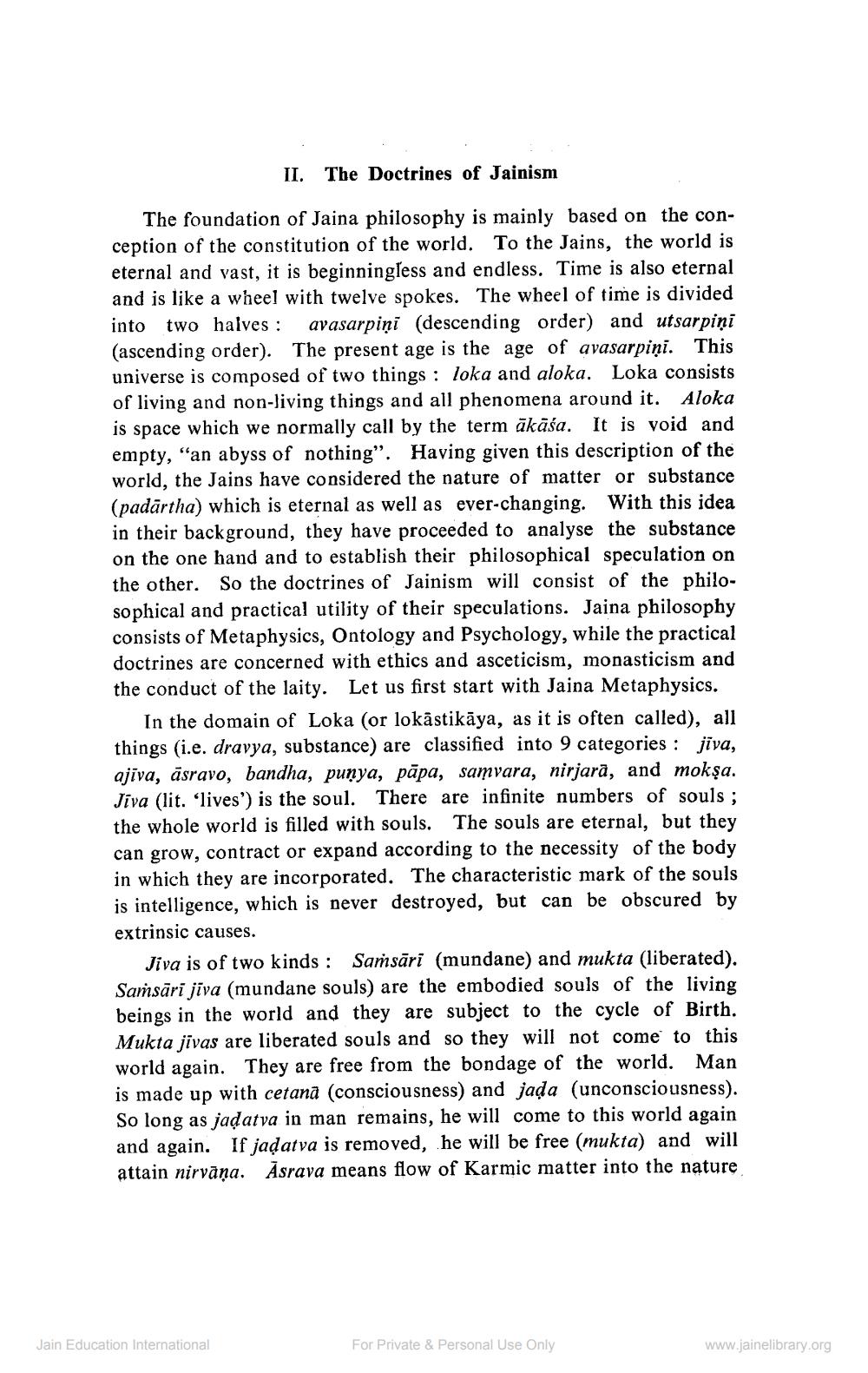Book Title: Nyayavatara Author(s): Satyaranjan Banerjee Publisher: Sanskrit Book Depot P Ltd View full book textPage 9
________________ II. The Doctrines of Jainism The foundation of Jaina philosophy is mainly based on the conception of the constitution of the world. To the Jains, the world is eternal and vast, it is beginningless and endless. Time is also eternal and is like a wheel with twelve spokes. The wheel of time is divided into two halves : avasarpiņi (descending order) and utsarpiņi (ascending order). The present age is the age of avasarpiņi. This universe is composed of two things : loka and aloka. Loka consists of living and non-living things and all phenomena around it. Aloka is space which we normally call by the term ākāśa. It is void and empty, “an abyss of nothing". Having given this description of the world, the Jains have considered the nature of matter or substance (padārtha) which is eternal as well as ever-changing. With this idea in their background, they have proceeded to analyse the substance on the one hand and to establish their philosophical speculation on the other. So the doctrines of Jainism will consist of the philosophical and practical utility of their speculations. Jaina philosophy consists of Metaphysics, Ontology and Psychology, while the practical doctrines are concerned with ethics and asceticism, monasticism and the conduct of the laity. Let us first start with Jaina Metaphysics. In the domain of Loka (or lokāstikāya, as it is often called), all things (i.e. dravya, substance) are classified into 9 categories: jiva, ajiva, ásravo, bandha, punya, pāpa, samvara, nirjarā, and mokşa. Jiva (lit. 'lives') is the soul. There are infinite numbers of souls ; the whole world is filled with souls. The souls are eternal, but they can grow, contract or expand according to the necessity of the body in which they are incorporated. The characteristic mark of the souls is intelligence, which is never destroyed, but can be obscured by extrinsic causes. Jiva is of two kinds : Saṁsāri (mundane) and mukta (liberated). Saṁsāri jīva (mundane souls) are the embodied souls of the living beings in the world and they are subject to the cycle of Birth. Mukta jivas are liberated souls and so they will not come to this world again. They are free from the bondage of the world. Man is made up with cetana (consciousness) and jada (unconsciousness). So long as jadatva in man remains, he will come to this world again and again. If jadatva is removed, he will be free (mukta) and will attain nirvana. Asrava means flow of Karmic matter into the nature Jain Education International For Private & Personal Use Only www.jainelibrary.orgPage Navigation
1 ... 7 8 9 10 11 12 13 14 15 16 17 18 19 20 21 22 23 24 25 26 27 28 29 30 31 32 33 34 35 36 37 38 39 40 41 42 43 44 45 46 47 48 49 50 51 52 53 54 55 56 57 58 59 60 61 62 63 64 65 66 67 68 69 70 71 72 73 74 75 76 77 78
